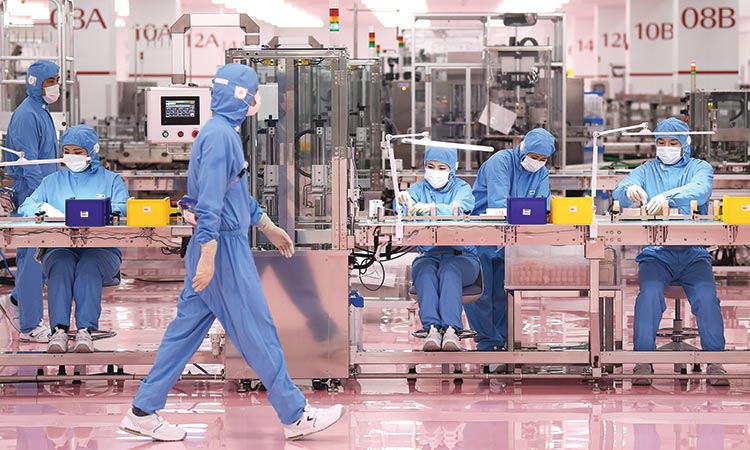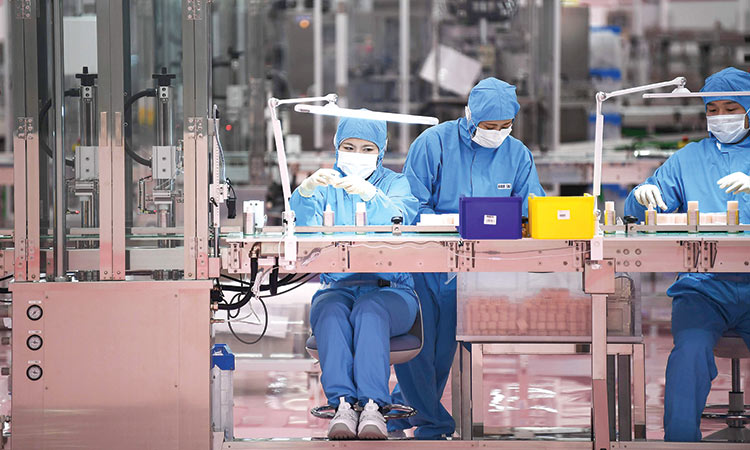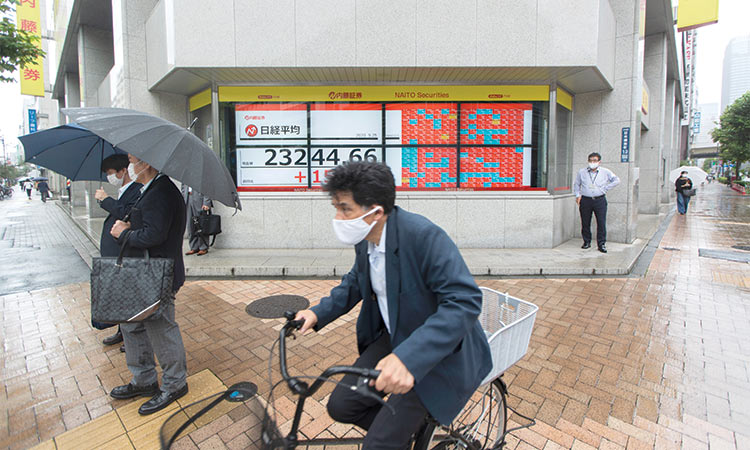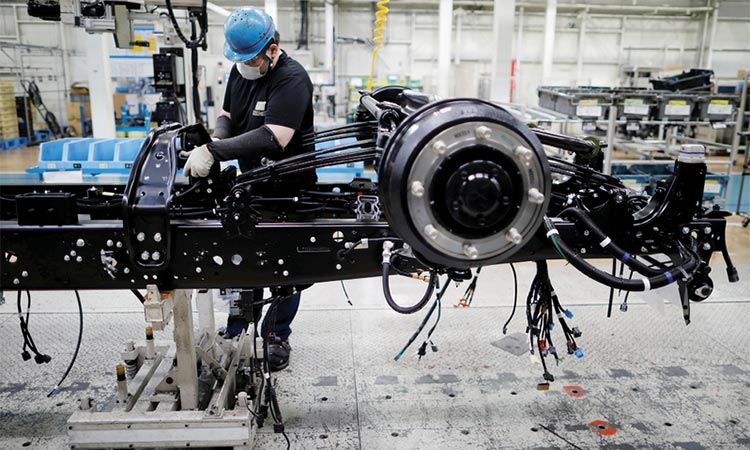Japan’s factory output falls at rapid speed in fourth quarter

Employees at a cosmetics factory in Otawara, Japan. Agence France-Presse
Separate data showed retail sales fell for a third straight month in December, adding to worries about consumer spending after a sales tax increase in October.
A growing virus outbreak in China is threatening to put more pressure on the Japanese economy. China is Japan’s second largest export market and Chinese account for 30% of all tourists visiting the country.
Factory output fell 4.0% in October-December, the fastest pace of decline since comparable data began in 2013, data from the Ministry of Economy, Trade and Industry (METI) showed on Friday.
But in an encouraging sign, factory output grew 1.3% in December, compared with a median estimate for a 0.7% gain in a Reuters poll of economists. That followed a 1.0% decline in November and a 4.5% drop in October.
And manufacturers surveyed by the ministry expect production to rise 3.5% in January and grow 4.1% in February.
The ministry kept its assessment of output, saying it is weakening. “The pace of rebound (in December) was not big... we will closely monitor whether factory output will recover in coming months,” a trade ministry official said.
He also said manufacturers hadn’t factored in impacts from China’s coronavirus when they made production forecasts for January and February, so these numbers will need to be monitored.
“The economy after the sales tax hike is expected to be weaker than previously projected as factory output and retail sales showed,” said Yoshiki Shinke, chief economist at Dai-ichi Life Research Institute. “Global auto sales didn’t perform well, which weighed on Japan’s auto exports. There is a risk factory output of autos may not recover much.”
There were some relief factors, such as a progress in the U.S.-China trade talks, which helped corporate sentiment and global recovery in the semiconductor sector, but risks remain.
“China’s economy is expected to slow down due to the impacts from the virus in the current quarter, which could hit Japan’s exports,” said Takeshi Minami, chief economist at Norinchukin Research Institute. “There is a chance the economy in the first quarter may also shrink after an expected contraction in the fourth quarter, depending China’s situation.”
Retail sales - a key gauge of private consumption - fell 2.6% in December from a year earlier, down for a third straight month and compared with a 1.8% decline expected by economists.
The Bank of Japan last week kept policy steady and nudged up its growth forecasts, citing subsiding global risks. But Governor Haruhiko Kuroda stressed his resolve to keep policy ultra-loose amid lingering uncertainties.
The government cut its assessment of capital spending in January for the first time in eight months due to softer global demand but said its overall view of the economy was unchanged from December.
Analysts polled by Reuters this month forecast the economy contracted by an annualised 3.6% in October-December, but believe it will rebound modestly in the current quarter.
Other data released on Friday showed Japan’s jobless rate stood at 2.2% in December, unchanged from November, around a three-decade low, and job availability also held steady at 1.57 per applicant. Tokyo’s core consumer price index (CPI), which includes oil products but excludes fresh food prices, rose an annual 0.7% in January from a year earlier, less than the median estimate for a 0.8 percent annual increase.
Meanwhile, Nikkei closed higher on Friday as some upbeat corporate earnings and forecasts helped, although the benchmark recorded its worst weekly slide in six months on fears of the rapidly-spreading coronavirus in China.
The Nikkei share average ended 1.0% higher at 23,205.18, but lost 2.6% in the week. January’s fall of 1.9% was its first monthly loss since August last year.
The broader Topix closed up 0.6% at 1,684.44 to end a punishing week.
Investors remained on the edge over how much the virus could disrupt the global economy, with the World Health Organisation (WHO) declaring it a global health emergency.
“Although I’m not denying the possibility that this coronavirus outbreak may hurt the economy, I think it has only limited and short-lived impact on Japan’s stock market,” said Archibald Ciganer, co-head of Japanese equity at T.Rowe Price.
Reuters







